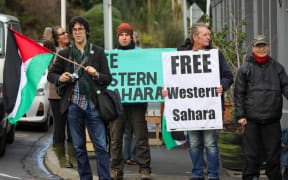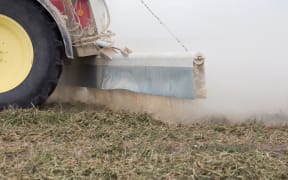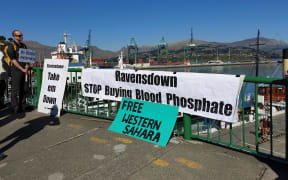Tangata whenua in Ahuriri (Napier) want to ensure a fertiliser plant won't degrade the environment any more than it already has.
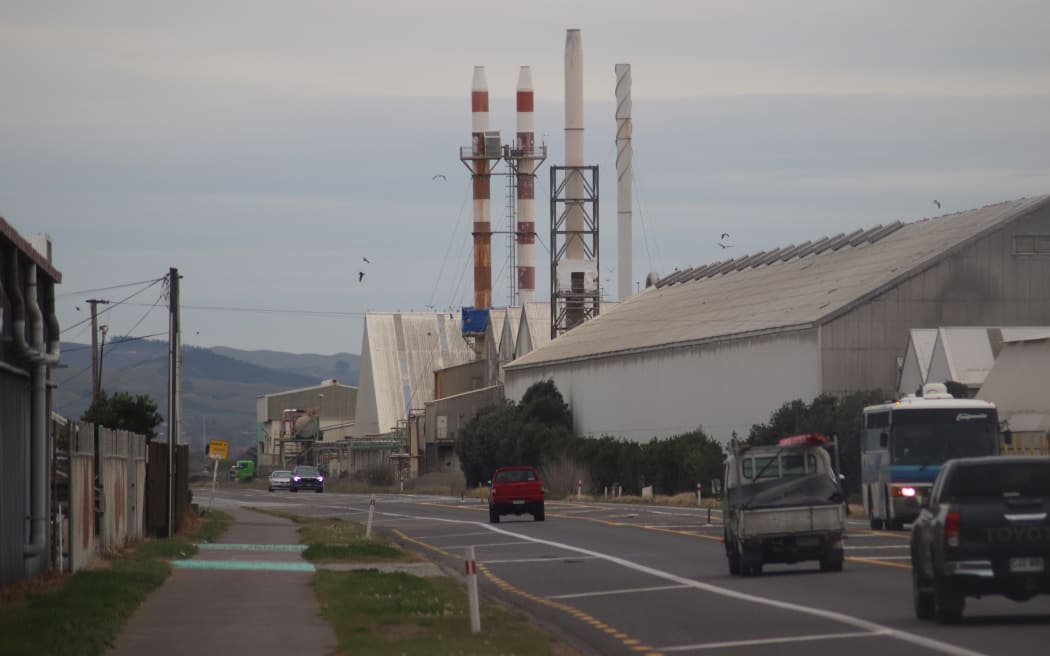
The Ravensdown plant in Napier is renewing its land use, air and water discharge and water take consents. Photo: RNZ / Tom Kitchin
Ravensdown is reapplying for the air and water consents needed to operate its huge superphosphate manufacturing plant.
Despite assurances of partnership, mana whenua feel their relationship with the farming giant has taken a backwards step.
Anyone who has driven along the coastal road between Hastings and Napier will know the Ravensdown fertiliser plant.
It is across from the beach and alongside the railway lines and its industrial waste leaks into the Waitangi Estuary.
The Waitangi Estuary is just south of Napier. It is a wāhi tapu - a sacred place for Māori.
Shade Smith, a kaitātari matua, or senior analyst, from local iwi Ngāti Kahungunu said it was an important place for tangata whenua.
"It being a place historically of where chiefs would meet, and an abundant supermarket or food source, mahinga kai for tuna, for whitebait, for kanai or mullet."
But he said it had become degraded - in a "diminished state of mauri".
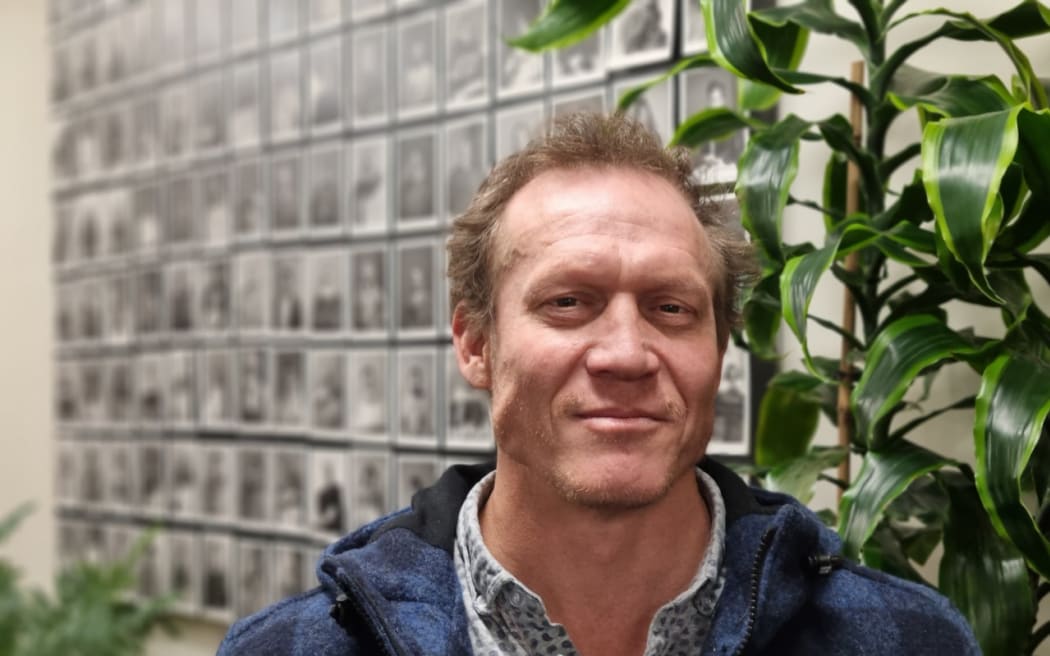
Shade Smith. Photo: RNZ / Tom Kitchin
He said there were "very high levels of various contaminants, in particular phosphorus" coming from the fertiliser plant.
High levels of phosphorous can lead to rapid weed growth and algal blooms, which can choke aquatic life.
Ravensdown reached out to mana whenua when it put in its consent application - and the relationship had been good.
They were part of a Technical Focus Group Ravensdown put together when it started reapplying for its consent.
But, partly due to legislative timeframes, there was a rush to get the application in and Smith said mana whenua were not around the table at the right time.
"You don't have that necessary time to kōrero and to give each other the, I guess the respect of saying 'this is what we're putting, then that is not giving effect to rangatiratanga and so that breakdown in relationship has meant that we've taken a step back."
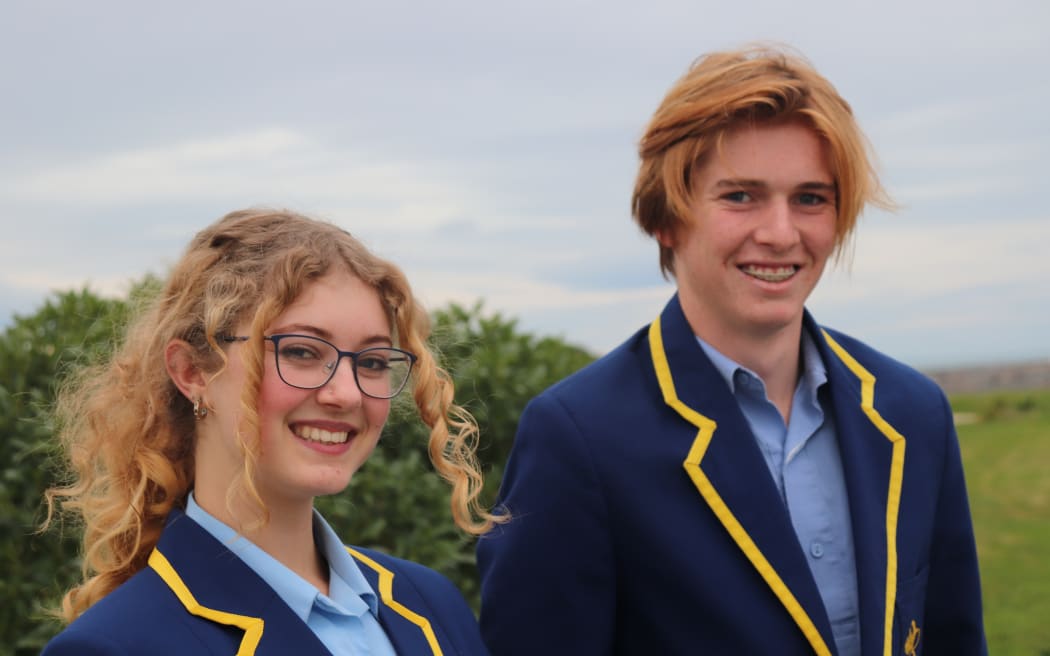
Taradale High School students Madison Milley and Elliot Morgan say the current discharge to the waterways from the plant is just not good enough. Photo: RNZ / Tom Kitchin
Elliot Morgan and Madison Milley, both 17 from Taradale High School, were also on the focus group and put in a submission on the process.
Elliot said something desperately needed to change.
"The amount of chemicals and metals coming out of the plant at the moment is just too high for what the environment can sustain. It's just not good enough at the moment."
Madison said they would like to see more of the contaminants dispersed on to land, rather than in the estuary, and possibly deeper in the ocean.
"If it wasn't going to be able to be all concentrated into the land, we could also push it out, obviously after going through a whole bunch of filtration systems, pushing it out into the deep water of the ocean."
Ravensdown's Napier site manager Andrew Torrens said experts found the current discharge was having only minor effects on the estuary.
But he was aware of public sentiment, and wanted to move the discharge elsewhere.
"We would discharge the majority of our stormwater and process water collection, which is treated, onto rural land for cropping. We believe that that is a more sustainable approach."
He was committed to working with mana whenua.
"We are continuing to work with them, we will continue to work with them. There's absolutely no concerns from Ravensdown on how that's tracking or where it might lead."
Mana whenua have told RNZ they too want to build a positive relationship with Ravensdown.
Hawke's Bay Regional Council consent manager Malcolm Miller said hearings were going to be held in August this year.
But he said these had been deferred, as more work had to be done to address the status of mana whenua as kaitiaki (guardians) of the land.
He said there would be ''rangatira to rangatira'' discussions between Ravensdown and mana whenua to resolve the issues.

